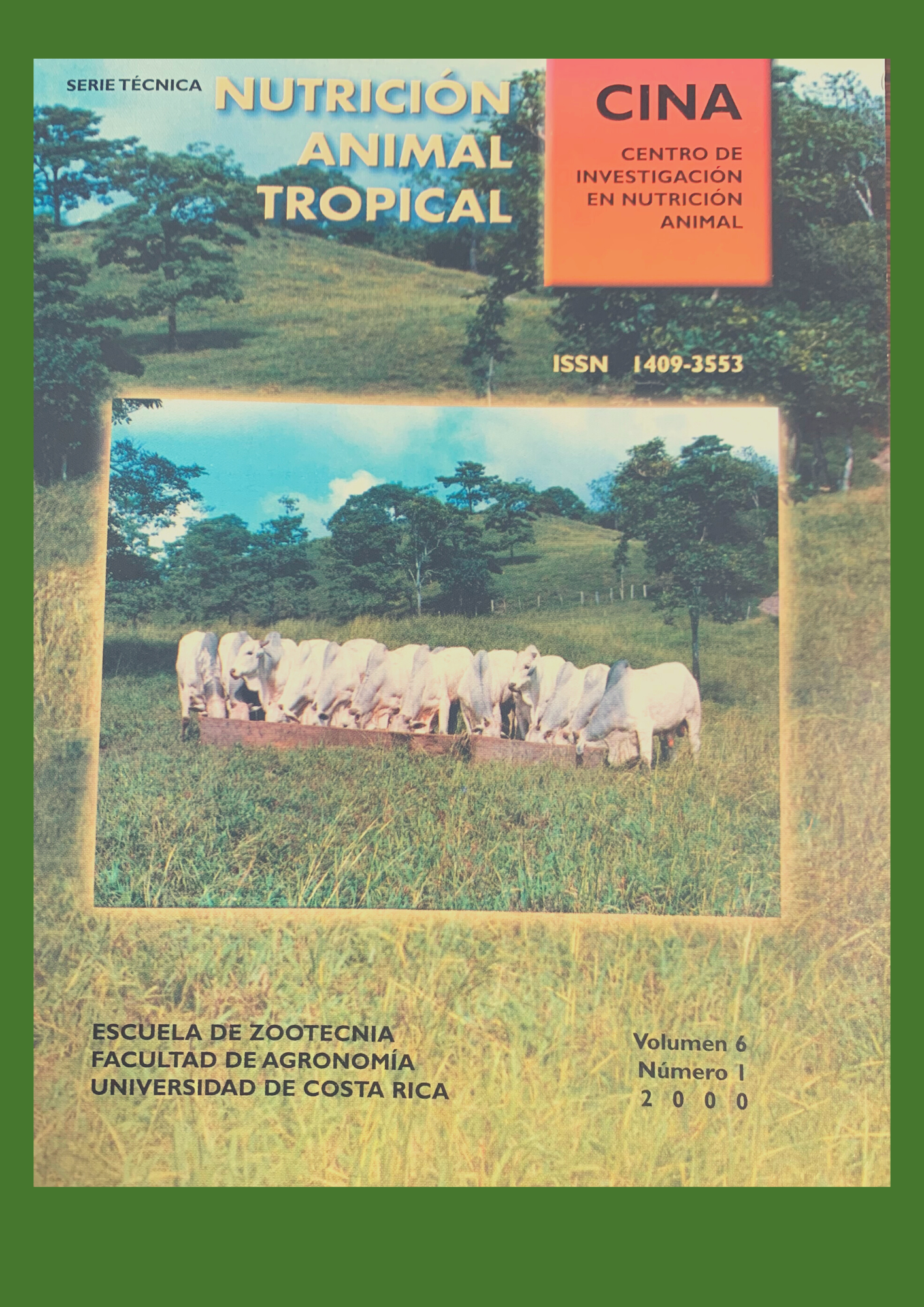Abstract
Partial or total substitution of corn and sorghum by pejibaye meal was evaluated in broilers, pullets, laying hens, geese, pigs and cattle; the meal was obtained from the processing of the whole fruit. Satisfactory results were obtained with pejibaye meal among the species evaluated. Even with a total substitution for maize or sorghum, values in feed consumption, weight gain, and feed conversion were positive. The meal manufacturing process must utilize proper thermal treatment (over 100.C for 20 min) of the fruit by cooking or by extrusion, to obtain the best meal, non thermal treated meals caused low feed consumption and poor feed conversion, due to the presence of inhibiting proteolytic factors, affecting primarily young individuals. Fiber levels in the diet must be controlled, due to an increase in the amount of fibrous parts of the brunch can affect it. If fiber and grinding are controlled, pejibaye meal can totally substitute com and sorghum in animal diets. This is an important issue if it is taken into account that must of feed stuffs are imported.

